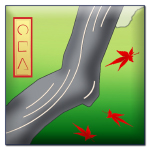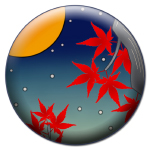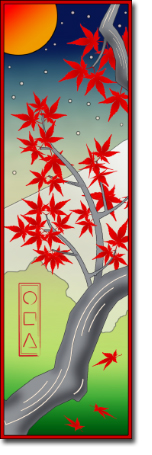On The Way: The Daily Zen Journal
Walking the Middle Path-Commentary on The Sutra of the Middle Way
Thich Nhat Hanh (1926-2022)

One day Buddha asked the monk Sona:
“Is it true that before you became a monk you were a musician?”
Sona replied that it was so.
The Buddha asked, “What happens if the string of your instrument is too loose?”
“When you pluck it, there will be no sound,” Sona replied.
“What happens when the string is too taut?”
“It will break.”
“The practice of the Way is the same,” said the Buddha.
The Sutra on the Middle Way has profound and wonderful meaning. But only when we discover how to apply the teachings in it to our daily lives can they be truly beneficial. Even when we are able to talk eloquently about the Middle Way, no-self, or Dependent Co-arising, we still need to ask: How can these teachings be put into practice every day?
The first way is to notice our attachment to the teachings themselves. Not only do views such as permanence and self need to be transcended, so do impermanence, non-self, and nirvana. The Buddha says the teachings are like a raft that helps us to the other shore. Once there, we leave the raft on the shore for others to use. The teachings, like the raft, need to be released.
It’s said that near the end of his life the Buddha said, “In forty-five years of teaching I have not said anything.”

In fact, he said a lot of things, but he didn’t want his listeners to get caught in his words. For ease of understanding, we speak of teachings such as impermanence, non-self, and interbeing as right views. But we know these are teachings to help us, they’re not theories.
For example, the notion of impermanence is to help us overcome the notion of permanence; it’s not a truth to be worshipped. The teachings need to be handled skillfully so we don’t get caught in them.
When presenting the twelve links of Dependent Co-arising, the Buddha says that “ignorance gives rise to impulses.” “Ignorance” means that we don’t understand what is happening, so we behave in a certain way. If we were able to see clearly, we would behave differently.

Each of us is caught, to a larger or smaller extent, in our emotions, in our difficulties, and in our experiences of suffering in the past. Because we’re caught, we repeat the same suffering over and over again. We have a habit energy of reacting to circumstances in a rote way. We tell ourselves that the next time this happens we won’t react in the old way—as we did two hundred years ago.
So why do we keep repeating this? Every time we behave like this we make others suffer, and we ourselves suffer.
Our habit energy is what causes us to repeat the same behavior thousands of times. Habit energy pushes us to run, to always be doing something, to be lost in thoughts of the past or the future and to blame others for our suffering. And that energy does not allow us to be peaceful and happy in the present moment.
The practice of mindfulness helps us to recognize that habitual energy. Every time we can recognize the habit energy in us, we are able to stop and to enjoy the present moment. The energy of mindfulness is the best energy to help us embrace our habit energy and transform it.
The energy of mindfulness is the full awareness of the present moment. This energy is generated from the practice of mindful breathing, mindful walking, mindful drinking, mindful eating, and so on. The energy of mindfulness carries within itself the energy of concentration.

When you are mindful of something, whether that something is a flower, a friend, or a cup of tea, you become concentrated on the object of your mindfulness. The more you are mindful, the more concentrated you become. The energy of concentration is born from the energy of mindfulness. And if you are concentrated enough, the energy of concentration contains the energy of insight.
Mindfulness, concentration, and insight are the energies that make up the Buddha. These three kinds of energy can transform habit energy and lead to healing and nourishment.

A few days of practicing mindful breathing and mindful walking can make a big difference. And the practice should be pleasant, should not be hard labor. When you breathe in, you bring your attention to your in-breath. “Breathing in, I know I am breathing in; breathing in, I feel alive.” In that breath is your happiness.
Whenever habit energies arise, we can accept and recognize them, and then they won’t push us to behave in negative ways. We can say to our habit energy, “I will look after you, habit energy, I will discover what your root is.”
Thich Nhat Hanh – commentary on the Sutra of the Middle Way
excerpted from Awakening of the Heart – Essential Buddhist Sutras and Commentaries 2021





I have often thought that the term Middle Way truly gives us a guideline for practice without a lot of extra expounding needed. Think about the sense of balance we have in certain activities – too far to either side literally can lead to a fall! So we do use this sense of balance in daily life.
And a recurrent theme for us as practitioners is seeing how much we can walk our talk because, “….only when we discover how to apply the teachings in it to our daily lives can they be truly beneficial.”
It is so easy to accumulate teachings and principles to a point where they can become a burden. In reality, we understand most deeply those principles we put into action; these are the things that assist powerful change.
Habit energy can sometimes be helpful or quite a hindrance when it leads to a kind of mindless repetition. However, when we are trying to add a new practice or healthy habit, the small steps taken at first can help to build a rewarding practice.
The challenge in anything we do daily is to keep our lights on, to remain engaged in the present so as not to become automatons. And how exactly does that happen?
Answering that question yourself is key to going deeper. What does it take for you to wake up in the moment?
One last note here is the use of the word interbeing. In an earlier section of the book Thich Nhat Hanh explains is use of this word. “Interbeing” is a word that is not in the dictionary yet, but if we combine the prefix “inter” with the verb “to be,” we have a new verb, inter-be. Everything coexists, and this is why I think the word interbeing should be in the dictionary. To be is to inter-be. You cannot just be by yourself alone. You have to inter-be with every other thing.
Watching the yellowing leaves falling,
Elana, Scribe for Daily Zen